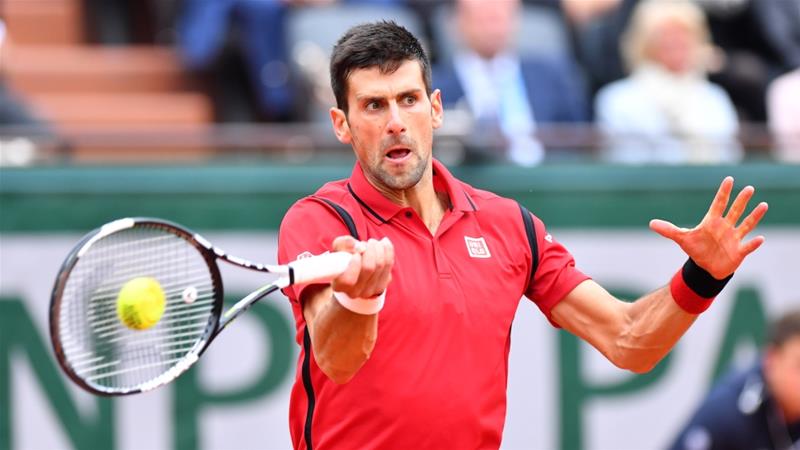BELGRADE, Serbia — Top-ranked tennis player Novak Djokovic announced Tuesday he and his wife tested positive for the coronavirus after he played in a series of exhibition matches he organized in Serbia and Croatia with zero social distancing amid the pandemic.
Raising questions about the full-fledged return of tennis, including the U.S. Open, planned for August, Djokovic is the fourth player to come down with COVID-19 after participating in matches held in Belgrade and Zadar, Croatia.
The others were three-time Grand Slam semifinalist Grigor Dimitrov, Borna Coric and Viktor Troicki.
“We believed the tournament met all health protocols and the health of our region seemed in good condition to finally unite people for philanthropic reasons,” Djokovic said in a posting on social media Tuesday. “We were wrong and it was too soon.”
The rest of his Adria Tour, which was supposed to head to Bosnia next, was called off.
“Unfortunately, this virus is still present, and it is a new reality that we are still learning to cope and live with. I am hoping things will ease with time so we can all resume lives the way they were,” Djokovic said in a statement released earlier. “I am extremely sorry for each individual case of infection. I hope that it will not complicate anyone’s health situation and that everyone will be fine.”
Djokovic, who stands third in the history of men’s tennis with 17 Grand Slam singles titles, has been in the news frequently in connection with the COVID-19 outbreak, which led to the suspension of the ATP and WTA professional tennis tours in March. Plans were announced last week for the sport’s sanctioned events to return in August.
In May, when he was staying in Spain, Djokovic broke local lockdown rules by practicing at a tennis club about a week before it was allowed.
More recently, he complained about the U.S. Tennis Association’s plans to try to protect people from the virus during the U.S. Open with such measures as limiting the size of players’ entourages, going so far as to say he didn’t know whether he would go to the tournament in New York.
The U.S. Open is scheduled to begin Aug. 31, without spectators, and the French Open — postponed from May — is supposed to start Sept. 27.
Djokovic found himself defending the lax arrangements of his exhibitions, which were meant to raise money to help those affected by the pandemic. The stands were packed, and players casually interacted with fans and each other off the court. Djokovic and other players were seen hugging each other and partying in night clubs and restaurants.
After Dimitrov said he tested positive over the weekend, the final of the competition in Croatia — in which Djokovic was supposed to play — was cancelled.
Djokovic, who is not showing symptoms of COVID-19, said he will remain in self-isolation for 14 days.
“It was all born with a philanthropic idea, to direct all raised funds towards people in need and it warmed my heart to see how everybody strongly responded to this,” Djokovic said. “We organized the tournament at the moment when the virus has weakened, believing that the conditions for hosting the Tour had been met.”
Both countries eased their lockdowns ahead of elections held in Serbia last Sunday and scheduled for July 5 in Croatia, and much of the Balkans is experiencing a spike in new COVID-19 cases since the strictest measures were lifted.
Opposition in Croatia has questioned whether the vote in Croatia should go ahead and whether Prime Minister Andrej Plenkovic and his government should self-isolate after he briefly met with Djokovic in Zadar.




